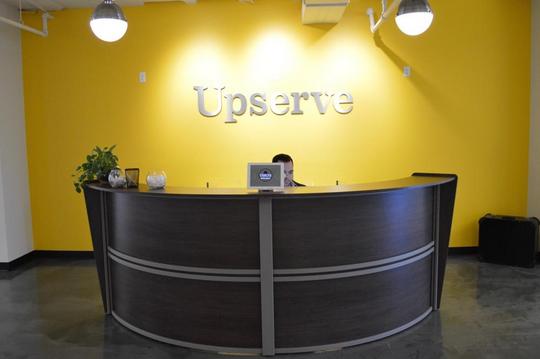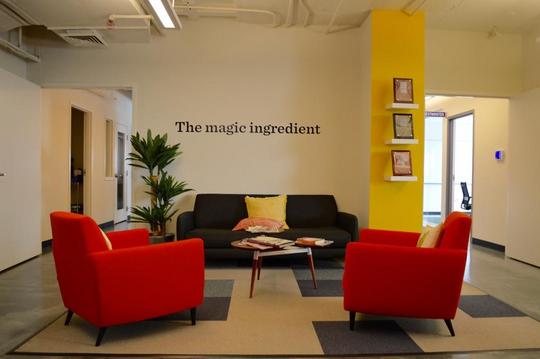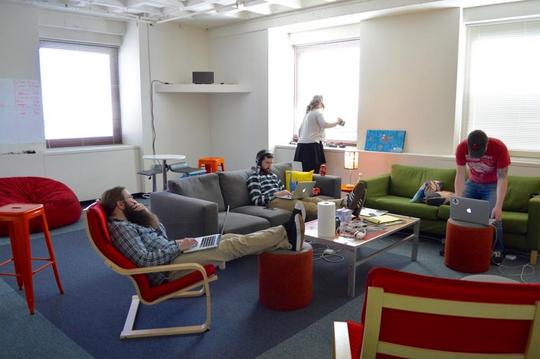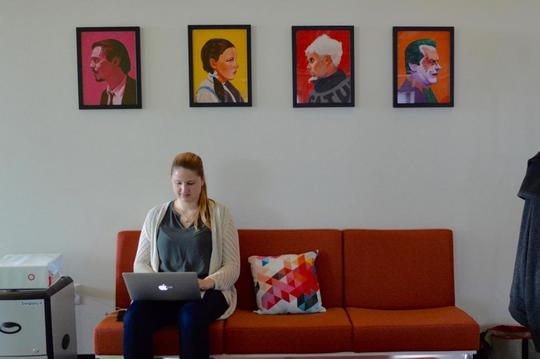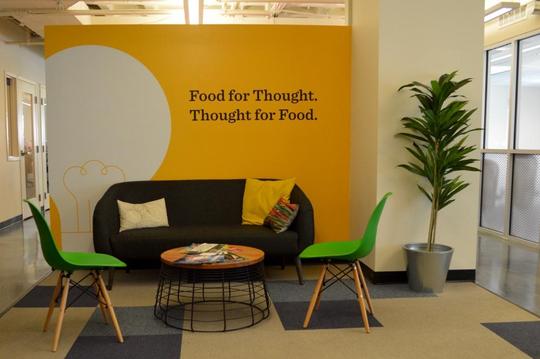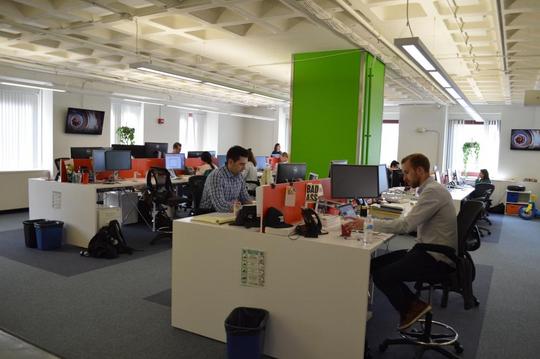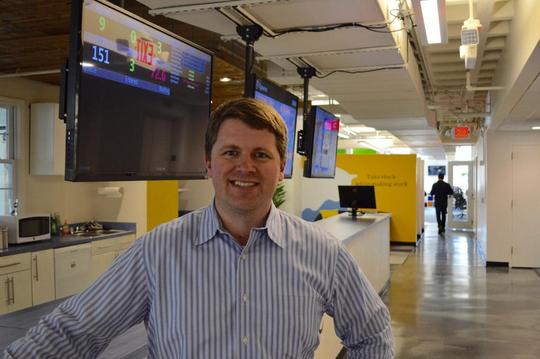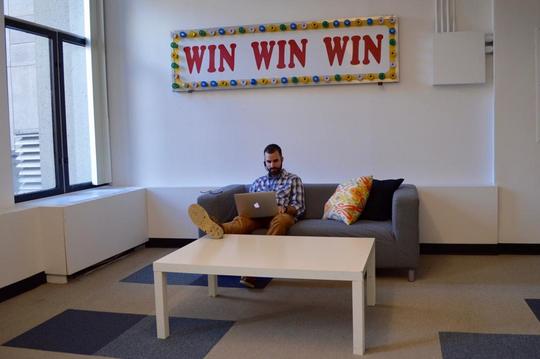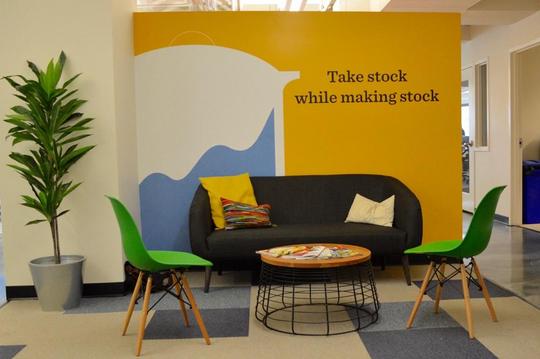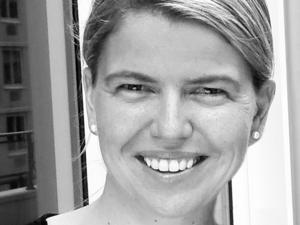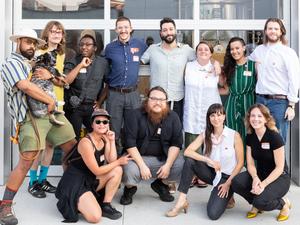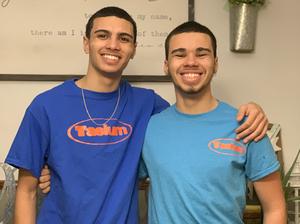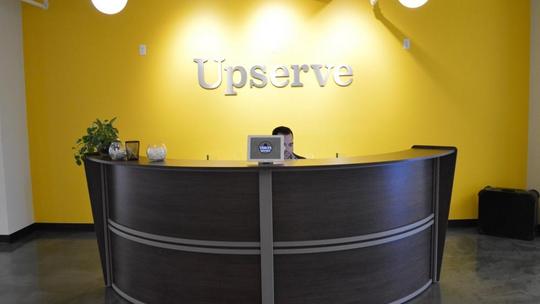
If you consider the career trajectory of Angus Davis up until he founded Upserve, you can understand why the restaurant analytics software company has become the top-funded startup in Rhode Island, with $40.5 million in funding from big-name investors, including LinkedIn co-founder Reid Hoffman.
After growing up in the small peninsula town of Bristol and then moving to Providence, Davis, at the age of 18, left for the West Coast and became the youngest full-time employee at Netscape, the groundbreaking internet startup. Following Netscape’s $4.2 billion sale to AOL in 1998, Davis eventually left and co-founded a speech recognition startup called Tellme Networks. Davis, with his co-founder Mike McCue, grew the company to over $120 million in revenue and over 300 employees before selling it to Microsoft for over $800 million in 2007.
During all that time, Davis’ connections to Rhode Island remained strong. His family still lived there. His wife’s family was also there. So after staying at Microsoft for two years, Davis decided to move back to his home state and start Upserve.
Rhode Island didn’t have much of a reputation as a startup hub, but Davis said he was able to convince investors that something there could work because of his previous successes at Netscape and Tellme. Davis admits that past results don’t always guarantee future performance, but it was his “unfair advantage” nevertheless and, with that, Upserve, which was first known as Swipely, was started in late 2009.
Upserve wasn’t originally founded as a restaurant point-of-sales and analytics software provider, but after first starting with “the goal of unlocking the data behind transactions,” Davis said, the company soon found the most traction within the restaurant industry. In May, Upserve said its software now manages more than $11 billion in annual transaction volume, which includes more than 32 million active diners and more than 23 million meals per month.
“We're about five times the size of our nearest competitor,” said Davis, who declined to provide revenue numbers. Over the next five years, the company is hinging on the restaurant industry’s continued migration away from legacy point-of-sale systems like Oracle’s MICROS division to cloud-based services like Upserve that Davis said are more affordable, easier to use and provide deeper business insights.
Upserve’s analytics uses transaction data to give restaurants insights on things like which menu items perform the best, how busy a certain day might be, the strengths and weaknesses of each waiter, and whether a bartender is giving away too many free beers. It also provides a general dashboard on total sales, total visits and average tips, among other things.
“The answers are there. The data is there, but a restaurant owner, she doesn’t necessarily know that,” Davis said. “So our challenge was to make it simple so she could gain those insights.”
Over the past year, Upserve has made an acquisition and a couple key partnerships to further boost its business. In May 2016, the company acquired Breadcrumb, a point-of-sales platform, from Groupon. Last fall, it partnered with Square Capital, the small business lending arm of Jack Dorsey’s merchant software company Square, to proactively alert Upserve customers when they might be eligible for a loan based on an analysis of their restaurant’s cash flow. Most recently, Upserve partnered with Grubhub to make online ordering faster and easier.
Headquartered in downtown Providence, Upserve also has offices in New York and San Francisco. Out of the company’s roughly 200 employees, Davis said about 75-80 percent of them work in Providence.
Davis said one of the advantages of working in Providence is that it has a lower cost of living than Boston, which is only a short train ride away. At the same time, he said, the salaries are competitive with what companies pay in Boston.
“We're not paying less than Boston employers, but our employees are paying a little bit less to live here,” Davis said. “It's not a huge difference, but it is a difference.”
